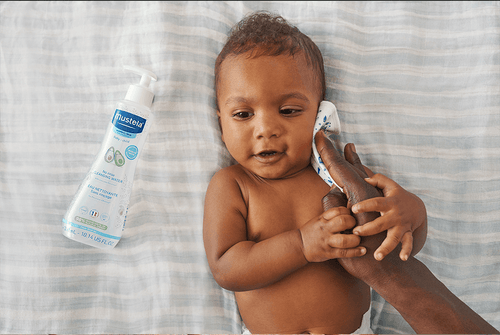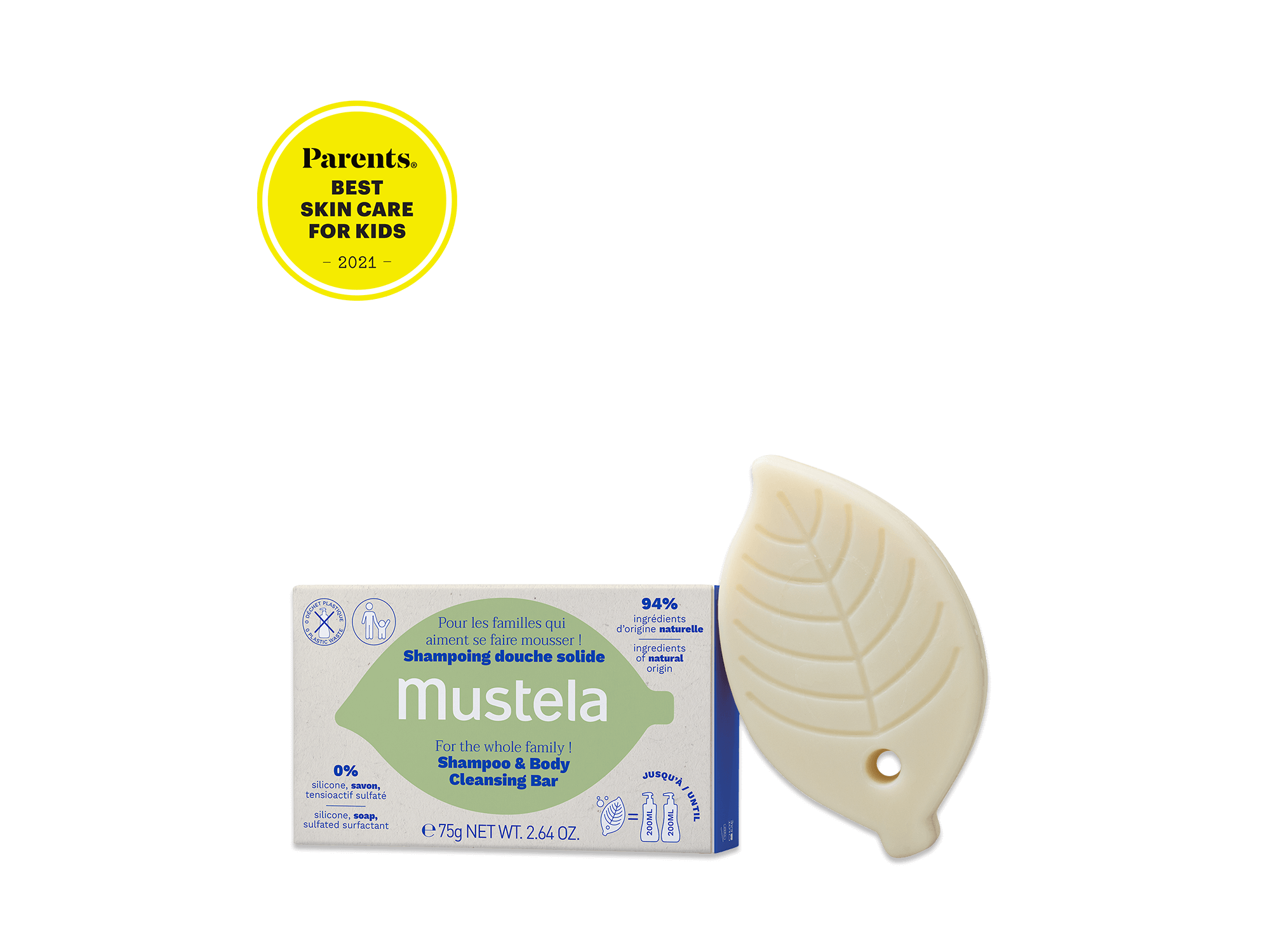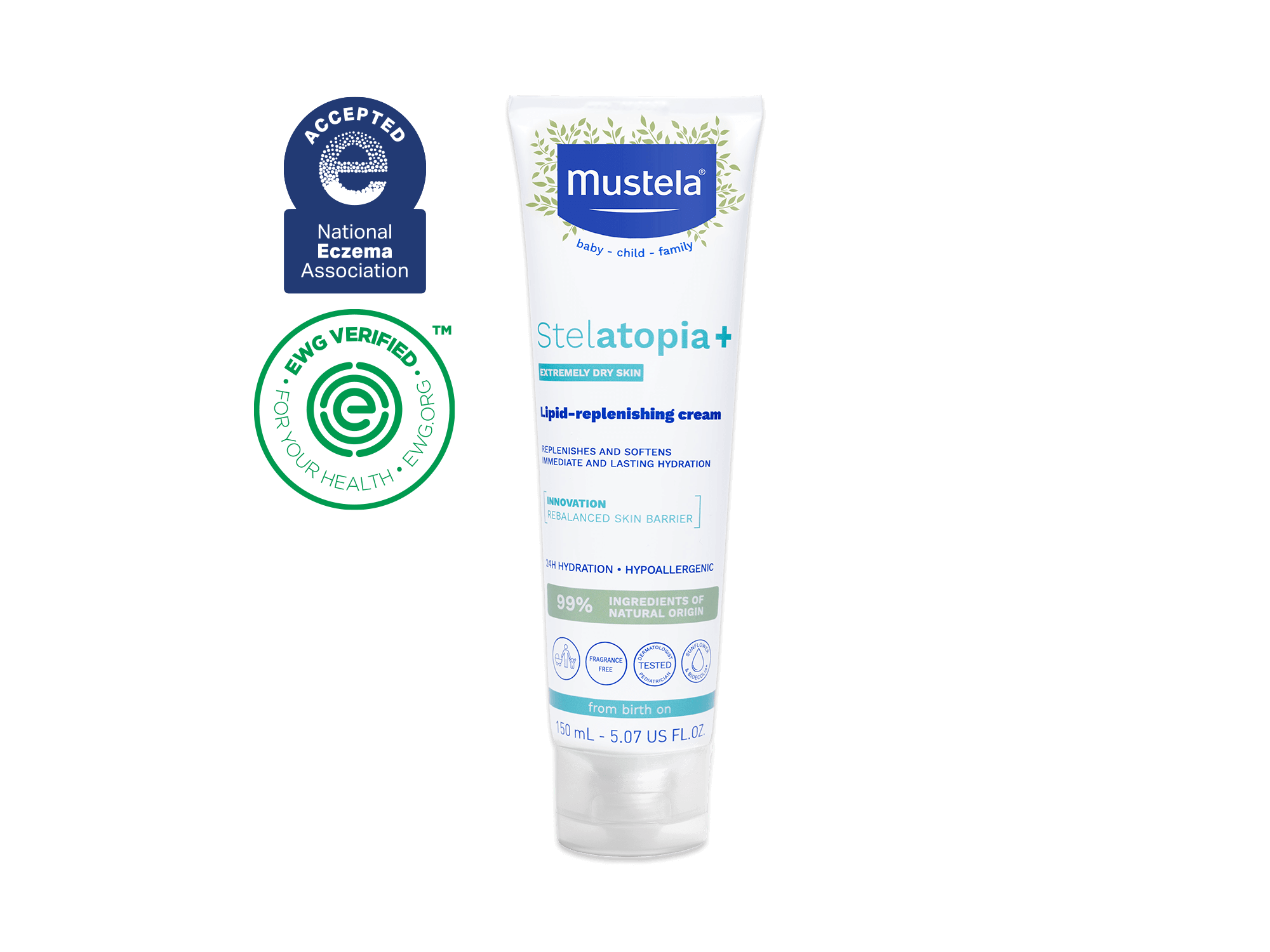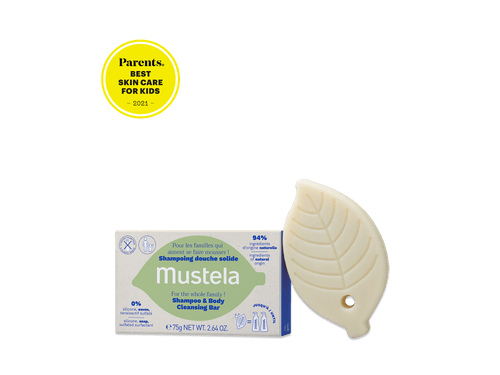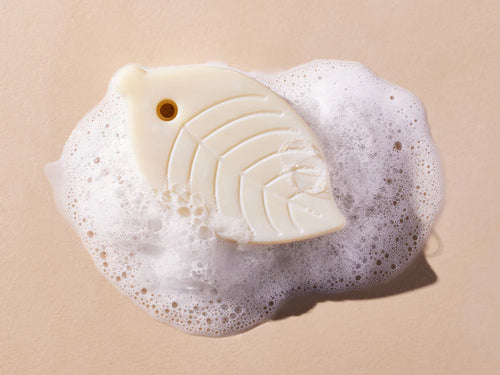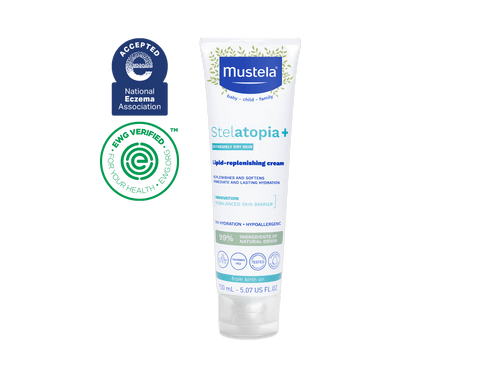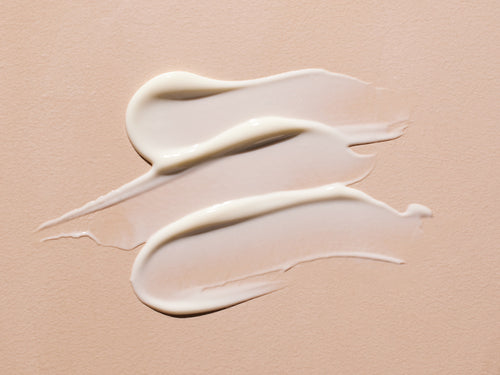Bringing a newborn baby into the world is one of life’s most wonderful experiences. As a parent of a newborn, it’s impossible to describe the joy and love you’re surely feeling.
Now that your little one has arrived, you may have some questions about newborn care. In this article, the baby experts at Mustela will explain everything you need to know about taking extra special care of your newborn baby.

Table Of Contents
- What Is A Newborn Baby?
- Your Newborn Baby’s Development
- Your Newborn Baby’s Senses
- Your Newborn Baby’s Feeding Schedule
- Your Newborn Baby’s Sleeping Habits
- Your Baby’s Doctor Appointments
- Bathing Your Newborn Baby
- Newborn Baby Output: What’s Normal?
- General Childcare Tips For Your Newborn
- Safety Tips For Your Newborn
What Is A Newborn Baby?
Your new addition won’t be a newborn for long. This stage only lasts for about a month. After that, your newborn is just considered, well, a baby.
These early days are critical for your baby’s development and well-being. During this time, they require a lot of love, attention, and care to help them thrive.
Your Newborn Baby’s Development
While in your womb, your baby progressed through the germinal, embryonic, and fetal stages. After birth, their growth and development continue to occur at a rapid pace.
It’s amazing how quickly they change in these early days.
At birth, baby boys are typically around 19.7 inches (50 cm) in length and have an average weight of 7.5 pounds (3.4 kg). Newborn girls are normally about 19.3 inches (49 cm) long and weigh 7.1 pounds (3.2 kg) on average.
Remember that every baby is unique, so your newborn’s length and weight may differ from the averages listed above.
In the first few days of life, your newborn may actually lose weight. If you notice your little one dropping a few ounces, don’t worry. This is perfectly normal due to the loss of excess fluids built up inside your baby’s body. Your newborn baby will regain any weight they lose. Most infants are back to their birth weight at nine or 10 days old.
At that point, you can expect your newborn to gain around one ounce per day for the remainder of their first month of life. That means they will have put on almost two pounds by the time they are one month old.
If your little one isn’t gaining weight back, their doctor may suggest a different feeding plan. For example, if you’re breastfeeding, they may recommend temporarily supplementing with formula to ensure your baby is getting the nutrients they need.
Newborns who continue to not gain well may get a diagnosis of failure to thrive. At that point, your doctor may bring up additional testing or evaluation to get to the root cause of your baby’s weight struggles.
If you’re ever concerned about your baby’s development, give their doctor a call. Don’t worry about sounding silly or that you’re bothering them. They’re there to help your baby stay healthy.

Your Newborn Baby’s Senses
In the very beginning of life, your newborn baby’s senses are not very sharp. They’re simply not accustomed to processing all the new sights, sounds, smells, and sensations in the world around them. After all, they’ve spent the last nine months inside your womb — an environment with very few stimuli.
Generally speaking, your newborn baby will only be able to see a few feet in front of their face. That’s why it’s helpful to put your face very close to theirs during playtime. It will allow your little one to become familiar with your facial features and study your expressions.
While your baby can’t recognize most sounds, research suggests that newborns recognize the voice of their mothers upon birth. Scientists theorize that newborns get to know the sounds of their mother’s voices while still in the womb.
As for their sense of smell, your newborn is unfamiliar with almost all of the new scents they come across. However, research has again provided evidence that babies are born with a special link to their mothers.
One study suggests that babies can recognize the scent of their mother’s milk from the very first days of life. Another study found that premature babies find the scent of their mother’s milk soothing. The bond between a newborn and their mother is truly special.
Your Newborn Baby’s Feeding Schedule

Your newborn needs to eat every two to three hours, whether or not they are awake and crying for a feed. Sometimes, you’ll need to wake your newborn so they can eat. This is true for both breastfed and formula-fed babies.
If your little one is sleeping and you have to rouse them for a feeding, take a few minutes to make sure they’re wide awake before giving them breastmilk or formula. Otherwise, they may doze off again before getting enough to eat.
To help wake them, pick them up and hold them close for a moment or two. Then, start talking to them and carefully moving their arms and legs. Check their diaper and change it if necessary. By now they should be ready to eat.
If they’re still not, rub their cheeks or try a tickling motion on the bottom of their feet. While they’re not yet ticklish, the stimulation should help arouse them. Once they’re awake, begin their feed. Continue talking to them or singing to help keep them stimulated while eating.
Don’t forget to burp your baby for around five minutes after a feeding. This will help the milk to settle and allow your newborn to digest it more comfortably. If your baby doesn’t burp, try moving them into a different position.
Keep in mind the standard over-the-shoulder burping doesn’t always work. You may need to carefully sit your baby on your lap while supporting their head and upper body with one arm. Then, use your other hand to gently rub and pat their back. This should help release the gas.
It’s also important to remember that there’s really no such thing as feeding your newborn baby too much. They’re developing extremely quickly, so they need all the nutrients they can get.
Expert tip: Apply Mustela's Organic Nursing Comfort Balm in-between feedings to keep your skin healthy. This soothing nipple cream eases discomfort and moisturizes sensitized nipples. Plus, it’s environmentally friendly, made of 100% ingredients of natural origin per ISO 16128 standard, and safe for both you and your baby during prenatal and postpartum pregnancy.
Your Newborn Baby’s Sleeping Habits

As you surely know, newborn babies sleep a lot. In fact, newborns need to sleep between 15 and 18 hours per day. Similar to feeding, there’s really no such thing as too much sleep for a newborn.
It is essential to always put your newborn down to sleep on their back. This is the only safe sleep position for your little one. Putting your baby down to sleep on their side or on their tummy greatly increases the chances of Sudden Infant Death Syndrome (SIDS).
To decrease the risk of SIDS as much as possible, put your newborn to sleep on a firm mattress. Remove all blankets, stuffed animals, toys, and pillows from the crib. It’s OK to put a sheet over the mattress, but it should fit tightly.
As noted above, you may sometimes have to wake your newborn to let them eat. This will be very tough on your sleep schedule, but it’s crucial for your baby’s development. Plus, your little one will begin sleeping through the night before you know it.
Also, please know that some babies naturally sleep less than others. If your little one takes longer to doze off than another baby you know or doesn’t nap for as long, it doesn’t mean that you’re doing something wrong. As mentioned above, all babies are different!
Of course, if your little one won’t sleep at all, you should talk to their pediatrician about it. They may have some personalized suggestions for you.
Your Baby’s Doctor Appointments
Speaking of doctor visits, you may suddenly feel like you’re always at the clinic. Most providers want to see newborns within a few days of birth. Then, they may ask you to come back at two weeks of age to make sure your baby is back to birth weight and growing well.
You’ll continue to have well-child checkups frequently throughout the first year. A common schedule calls for visits at one month, two months, four months, six months, nine months, and 12 months of age.
These appointments help track your child’s growth and development. At each one, you’ll strip your baby down to get weighed and measured. The doctor will use growth charts to see how your child compares to other children their age.
Then, they’ll check their overall condition. To test for hip dysplasia, the doctor will bend your child’s legs and knees. They’ll also listen to your little one’s heart and lungs using a stethoscope, and use an otoscope to look inside their ears, nose, and throat.
At each appointment, the doctor will ask about your child's input and output. They'll want to know how feeding is going and how many times a day you're changing a diaper.
They'll also discuss any questions or concerns that you have. And they can give you advice about nutrition, vaccines, and developmental milestones.
Since the doctor plays such an important role in your child’s life, it’s important to find one that you trust. If you aren’t sure which provider to use, do some research and ask other parents in your area.
Immunizations

Most of the time, newborn babies receive a vaccination shot on the day of delivery. Your newborn most likely got the first round of the Hepatitis B vaccination at the hospital. The doctors probably also drew some blood from your baby’s heel to perform a newborn screening.
This checks for some genetic disorders, as well as certain endocrine or metabolic disorders. Early detection of these conditions can help improve the outcome.
If these things weren’t taken care of on the day of your child’s birth, don’t worry. Your newborn’s first baby checkup should be three to five days after birth. The doctor will be able to do the screening and give the first Hep B immunization during that appointment.
Bathing Your Newborn Baby
Developing a daily hygiene routine is an important step for all parents. Here are some helpful tips for bathing your newborn in a way that will protect their delicate, sensitive skin.
- Use water that is around 98 degrees Fahrenheit (give or take two degrees)
- Never leave your newborn in the bath unattended, not even for a few seconds
- Keep baths to 10 minutes or less
- Have a soft towel ready to wrap your newborn in as soon as the bath is over
We recommend bathing your baby every day with gentle, baby-friendly products, like Mustela’s Gentle Cleansing Gel and Foam Shampoo for Newborns. All of Mustela’s products are made with ingredients of natural origin per ISO 16128 standard that will gently cleanse your baby’s soft skin without drying it out or causing irritation.
If you prefer, however, you can bathe your newborn every other day. As long as you’re changing your baby’s diapers the right way and thoroughly cleaning your baby’s bottom, there won’t be any hygiene concerns.
Try Mustela’s No-Rinse Cleansing Water, a baby-safe micellar water, to cleanse your little one’s skin on the days that you don’t bathe them. It’s a quick and easy way to keep your baby’s skin clean and soft.

Newborn Baby Output: What’s Normal?
You may be surprised at what comes out of your newborn baby. Initially, their stool is a tarry consistency that’s dark in color. This is called meconium. It’s the stool that built up inside of them while they were developing in the womb.
If you plan to use cloth diapers, consider waiting until this stool has cleared out before making the switch. Otherwise, you may wind up with meconium stains that are difficult to remove.
Meconium typically lasts for 24 to 48 hours. Since it’s so thick, you’ll want to keep a pack of Cleansing Wipes on hand. The Avocado Perseose and aloe can help keep this delicate area moisturized.
Then, once your baby is a couple of days old, their body transitions from meconium to regular newborn poop. However, breastfed and formula-fed babies have different types of stool.
Breastfed babies tend to have soft, yellow-to-tan poop that’s seedy in texture and resembles mustard. If you notice lime green stools, it could be a sign that they’re getting too much foremilk. Try leaving them on one side longer at each feeding to see if the color changes.
Formula-fed babies usually have thicker, darker bowel movements. It’s more like peanut butter in consistency and tends to be larger. This poop ranges from yellow to brown.
Most color changes aren’t a cause for concern. But it's wise to keep an eye on your newborn’s stool in case a problem arises.
Here are some things that you should call your doctor about:
- Blood
- Mucous (especially if there’s a lot)
- Diarrhea (newborn babies dehydrate easily)
- Constipation (hard and pebble-like)
- Chalky, white color
- Anything that concerns you
While this section has been mostly about poo, that’s not the only waste coming out of your baby. You should also keep an eye on your baby’s urine output. After the first few days, you should be seeing at least six wet diapers a day. If you’re not, talk to the doctor about it.
General Childcare Tips For Your Newborn
It probably seems like all your newborn does is eat and sleep, but they are rapidly developing even when you can’t see the evidence. Fortunately, there are a few things you can do to help their development along.
First, hold your baby as often as possible. A huge body of research has established the link between touch and a child’s development. For example, one study found that infants who receive less touch from caregivers experience more distress. Another study found that a lack of touch and bonding at an early age may cause long-term developmental and emotional issues.
The science is clear: Hold your newborn close as much as possible!
If you need your hands, try a newborn sling or carrier. This way, your baby gets the benefits of being close to you and you’re able to get some things done.
In addition, speak, read, and sing to your little one frequently. Your baby can’t yet understand you, and sometimes it may even seem like they can’t hear you or aren’t listening. But research has shown that children who are spoken to and read to more as infants develop language skills faster.
To promote your newborn’s physical development, make sure to give them plenty of tummy time. At first, try lying them belly-side down across your lap. Hold them in this position for a couple of minutes. In a few weeks, start putting them on a clean blanket in this position.
It gives them a chance to straighten the muscles in their neck and head and to try moving in different ways. Changing their position can also help minimize friction-based hair loss.
Even if your newborn can only handle tummy time for a few minutes at first, make it a part of your daily routine. They’ll be wiggling and squirming around on the floor for longer periods of time soon enough!
Safety Tips For Your Newborn

Nothing is as important as your baby’s safety. Follow these tips to make sure your newborn is as safe as possible at all times:
- Take the time to babyproof your home
- Minimize the amount of contact your baby has with strangers
- Ask visitors to use hand sanitizer before touching your baby
- Keep small objects out of your child’s reach to prevent choking hazards
- Never leave your baby unattended for any length of time
- Always put your newborn down to sleep on their back
- Keep your baby’s crib free of all pillows, blankets, and stuffed animals
- Keep your hand on your baby if you’re using a changing table or they’re on another elevated surface
- Head to the doctor immediately if your newborn ever has trouble breathing
Now is also a great time to take a course on newborn CPR and first aid. That way, if anything happens, you’ll know what to do.
Never Shake A Baby
Since your little one’s skull isn’t fully developed yet, shaking them can cause serious injury or death. If you’re feeling frustrated by their crying, try this:
Take a few deep breaths, make sure your baby is somewhere safe (like in their crib), and walk away for a couple of minutes.
In addition, don’t be afraid to ask for help when you need it. Ask if anyone in your family or one of your friends could come sit with your newborn while you get some sleep. Sometimes, a couple of hours of shut-eye can make a big difference.
Newborns Grow So Quickly!

The first few weeks of your child’s life are some of the most precious. They’re also fleeting. Remember to take plenty of photos to save all of the incredible moments with your newborn baby.
Also, stock up on some Mustela baby care basics, like Cleansing Wipes, No Rinse Cleansing Water, and Gentle Cleansing Gel. Between these clean, gentle products and all of the tips in this article, your little one will grow up as healthy as can be.

